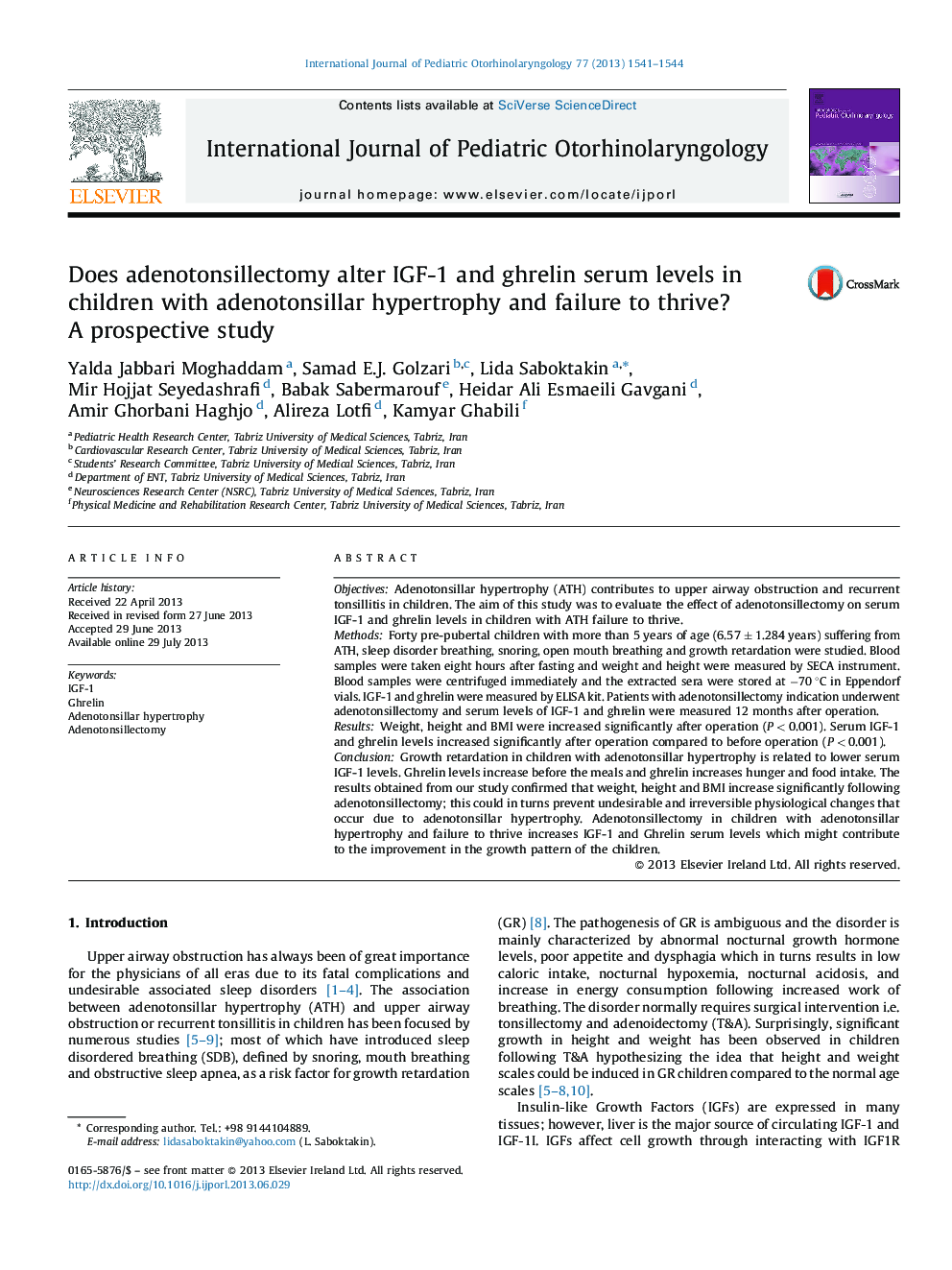| Article ID | Journal | Published Year | Pages | File Type |
|---|---|---|---|---|
| 6213534 | International Journal of Pediatric Otorhinolaryngology | 2013 | 4 Pages |
ObjectivesAdenotonsillar hypertrophy (ATH) contributes to upper airway obstruction and recurrent tonsillitis in children. The aim of this study was to evaluate the effect of adenotonsillectomy on serum IGF-1 and ghrelin levels in children with ATH failure to thrive.MethodsForty pre-pubertal children with more than 5 years of age (6.57 ± 1.284 years) suffering from ATH, sleep disorder breathing, snoring, open mouth breathing and growth retardation were studied. Blood samples were taken eight hours after fasting and weight and height were measured by SECA instrument. Blood samples were centrifuged immediately and the extracted sera were stored at â70 °C in Eppendorf vials. IGF-1 and ghrelin were measured by ELISA kit. Patients with adenotonsillectomy indication underwent adenotonsillectomy and serum levels of IGF-1 and ghrelin were measured 12 months after operation.ResultsWeight, height and BMI were increased significantly after operation (P < 0.001). Serum IGF-1 and ghrelin levels increased significantly after operation compared to before operation (P < 0.001).ConclusionGrowth retardation in children with adenotonsillar hypertrophy is related to lower serum IGF-1 levels. Ghrelin levels increase before the meals and ghrelin increases hunger and food intake. The results obtained from our study confirmed that weight, height and BMI increase significantly following adenotonsillectomy; this could in turns prevent undesirable and irreversible physiological changes that occur due to adenotonsillar hypertrophy. Adenotonsillectomy in children with adenotonsillar hypertrophy and failure to thrive increases IGF-1 and Ghrelin serum levels which might contribute to the improvement in the growth pattern of the children.
